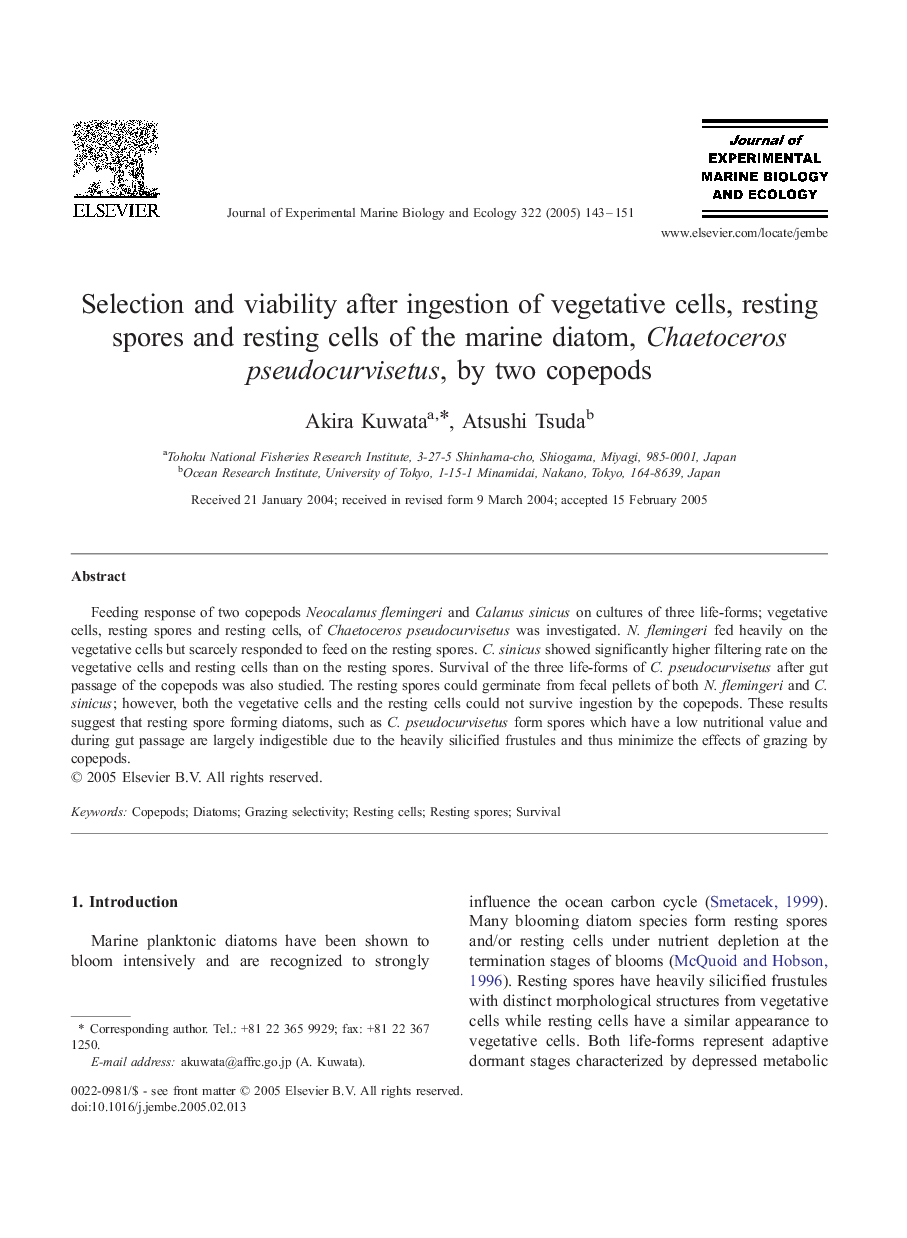| Article ID | Journal | Published Year | Pages | File Type |
|---|---|---|---|---|
| 9448646 | Journal of Experimental Marine Biology and Ecology | 2005 | 9 Pages |
Abstract
Feeding response of two copepods Neocalanus flemingeri and Calanus sinicus on cultures of three life-forms; vegetative cells, resting spores and resting cells, of Chaetoceros pseudocurvisetus was investigated. N. flemingeri fed heavily on the vegetative cells but scarcely responded to feed on the resting spores. C. sinicus showed significantly higher filtering rate on the vegetative cells and resting cells than on the resting spores. Survival of the three life-forms of C. pseudocurvisetus after gut passage of the copepods was also studied. The resting spores could germinate from fecal pellets of both N. flemingeri and C. sinicus; however, both the vegetative cells and the resting cells could not survive ingestion by the copepods. These results suggest that resting spore forming diatoms, such as C. pseudocurvisetus form spores which have a low nutritional value and during gut passage are largely indigestible due to the heavily silicified frustules and thus minimize the effects of grazing by copepods.
Related Topics
Life Sciences
Agricultural and Biological Sciences
Aquatic Science
Authors
Akira Kuwata, Atsushi Tsuda,
